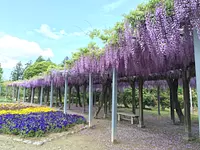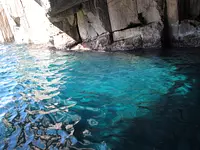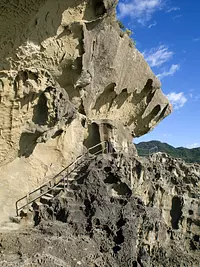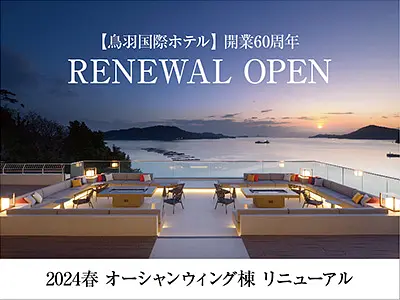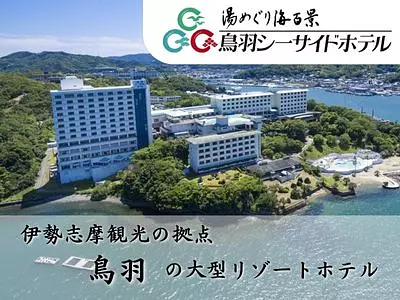What is the “Mental Barrier-Free Certification System”? Promotion of various systems that you should know about
In Mie Prefecture, the region is working together to raise awareness of ``mental barrier-free'' and promote the creation of barrier-free tourist destinations that can be visited by a wide variety of people, including people with disabilities, the elderly, and foreigners, with peace of mind. To achieve this goal, we are promoting registration with the ``Mental Barrier-Free Certification System for Tourist Facilities.'' In this article, we will introduce the contents of the ``Mental Barrier-Free Certification System for Tourist Facilities'' and the unique initiatives of these facilities. Please learn more about this system!
table of contents
What is the “Mental Barrier-Free Certification System for Tourist Facilities”?
Unique initiatives of the facility
- Accommodation: Toba Seaside Hotel
A special table has been installed for “SS Ping Pong” which can be enjoyed by people with disabilities. - Restaurant: Sweets shop Kikyoya Orii
"Soft porridge daifuku" that is easy to swallow and eat - Tourist Information Center: KihokuTown Tourism Service Center (KihokuTown Tourism Association)
Created materials summarizing barrier-free information
“What is the mental barrier-free certification system for tourist facilities?”
This is a certification system for tourist facilities that actively work on providing barrier-free accommodation and disseminating barrier-free information. It was established in December 2020 by the Japan Tourism Agency.
The unique feature of this system is that the criteria for certification is not based on the presence or absence of facilities such as wheelchair-accessible toilets or barrier-free rooms, but rather on ``intangible initiatives'' such as wheelchair rentals and accommodations for the visually impaired and hearing impaired. To become a.
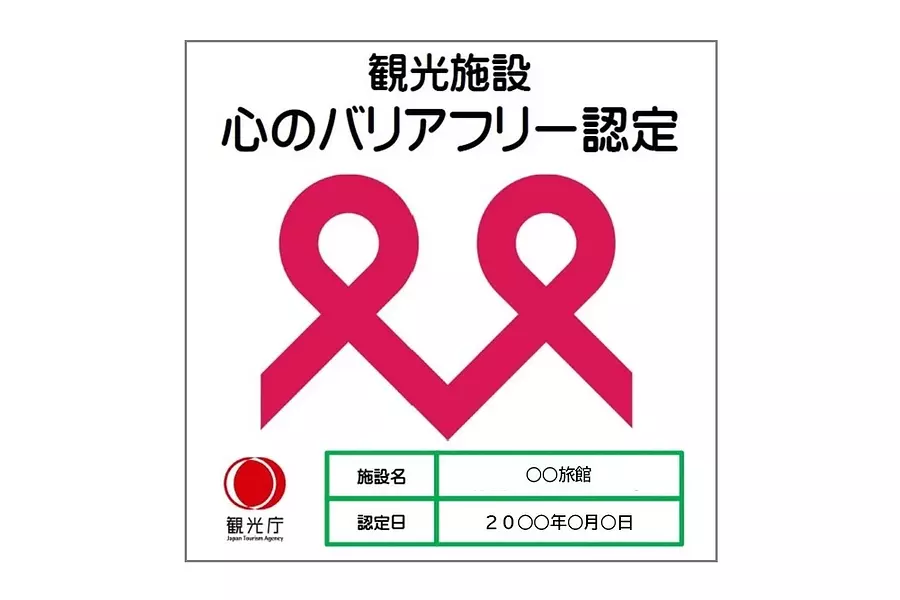
Certified facilities can display such a "certification mark" at the entrance or front desk of the facility, or display it on their website, pamphlet, etc.
In other words, facilities with this mark are "facilities that understand and practice barrier-free hospitality"! This mark will be helpful when choosing a facility in the future, so please keep it in mind.
As of March 2023, the target facilities are
・ Accommodation facilities
・ Restaurant
・ Tourist information center
There are three types of facilities, but the number of applicable facility types will be expanded in the future.
Unique initiatives of the facility
In FY2020, Mie Prefecture conducted a project to publicize and support applications for the ``Mental Barrier-Free Certification System for Tourist Facilities'' (hereinafter referred to as the ``Mental Barrier-Free Certification System'').
The project was entrusted to the Ise-Shima Barrier-Free Tour Center, which held training sessions and consultations on application procedures at three locations in the prefecture. The course was attended by 55 people from 36 business locations.
We would like to introduce some of the facilities that participated in the training session and applied for unique initiatives.
Accommodation: Toba Seaside Hotel
A special table has been installed for “SS Ping Pong” which can be enjoyed by people with disabilities.
"SS Ping Pong" is a sport that was started in Mie in 2015 and is derived from "sound table tennis," a competition for visually impaired people. Roll the ball and pass it between the table tennis table and the net to hit each other.
There is a metal inside the ball that makes a sound when rolled, so the speed and direction of the ball can be determined by the sound.
The edge of the stand has a raised edge that prevents the ball from falling, making it a great way to keep the rally fun.
SS is Lifetime (Syogai) and Sports (Sports). As the name suggests, "SS Ping Pong" is something that everyone can enjoy together, including visually impaired people, physically challenged people, and small children!
At Toba Seaside Hotel, one of the table tennis tables was converted into a dedicated SS ping pong table and is now permanently installed.
Non-guests are welcome to use the facility on a day trip, so we have created an environment where anyone can experience it at any time.
SS ping pong fee: 50 minutes 800 yen /1 device
Restaurant: Sweets restaurant Kikyoya Orii
"Soft porridge daifuku" that is easy to swallow and eat
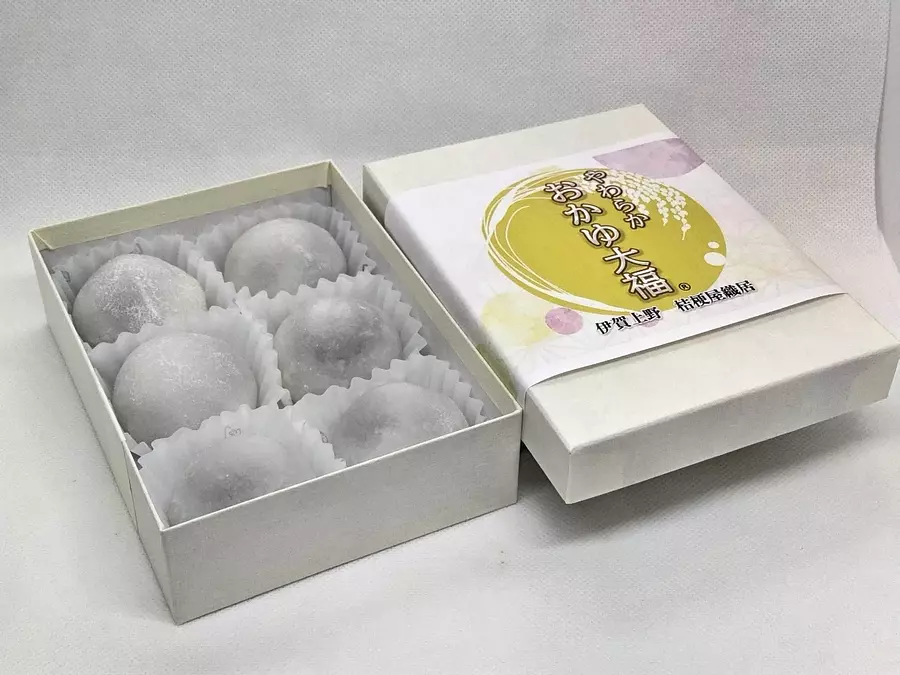
Kikyoya Orii is a long-established Japanese confectionery store that has been in business for over 400 years.
This ``Okayu Daifuku'' is a Daifuku-style sweet that was developed with the hope that people who have difficulty swallowing due to age or other reasons would enjoy eating it.
The soft dough made from non-glutinous rice wraps the smooth strained red bean paste. Although it was shaped like "Daifuku", it loosened up as soon as I put it in my mouth, so I was able to swallow it easily and ate it! A great product that will give you a sense of satisfaction.
It seems that people at welfare facilities are also very happy with it.
There is an eat-in corner inside the store, and we have applied as a restaurant for the ``Mental Barrier-Free Certification System''.
Tourist Information Center: KihokuTown Tourism Service Center (KihokuTown Tourism Association)
Created materials summarizing barrier-free information
KihokuTown is surrounded by lush green mountains and is home to the Kumano Kodo, a World Heritage Site.
KihokuTown Tourist Service Center provides tourist information at the entrance to KihokuTown, next to Michi-no-eki Kii-NagashimaManbo.
Here, the staff members collect information about places with nursing rooms, multi-purpose restrooms, and facilities that are wheelchair-friendly, and use this information to provide guidance.
Accurate information from local people is the most reliable thing for people who are worried about traveling. This is a wonderful initiative that not only reassures customers but also showcases the local hospitality.
Businesshours:9:30-17:30_
For facilities, let's aim for certification under the "Mental Barrier-Free Certification System for Tourist Facilities"!
What are the benefits of certification?
Aiming to be a facility that everyone can use with peace of mind has become an essential element in terms of improving services and creating business opportunities. We can start working on it right away, with ingenuity tailored to the company's scale and customer base.
Also, if you look at the "three certification criteria" below, you will find that many facilities only do what they normally do at their own facility. Some people may think that this is normal hospitality and that there is no need to go through the trouble of getting certified.
However, until now there were few criteria by which customers could judge the acceptance of software, and some said it was difficult to choose, so this certification system was created. In the future, it seems likely that we will reach a time when customers will choose a facility based on whether or not it has been certified under the Mental Barrier-Free Certification System.
Let's get certified and promote that our facility promotes barrier-free hospitality!
In 2021, the revised Act on Eliminating Discrimination against Persons with Disabilities was enacted, and it was decided that it would come into effect within three years. As a result, "providing reasonable accommodation", which was considered an obligation for private businesses to make efforts, will now become a legal obligation.
When applying for the ``Mental Barrier-Free Certification System'', reviewing what kind of ``reasonable accommodations'' can be provided at your facility will also help you prepare for legal revisions.
In addition, the list of certified facilities nationwide is updated regularly on the Japan Tourism Agency website.
It seems that companies and governments also check the certification, so being certified may create new business opportunities.
Take this opportunity to challenge yourself to become certified!
What are the three certification standards?
In order to receive certification under the Mental Barrier-Free Certification System, it is necessary to meet all three criteria below.
① Three or more measures are taken to complement the barrier-free performance of the facility.
② Conduct education and training regarding barrier-free at least once a year
③ Proactively disseminate barrier-free information on websites other than your own website
I will explain each one step by step.
Certification criteria ①
Three or more measures are taken to complement the barrier-free performance of the facility.
(example)
【hotel】
・Wheelchair rental available
・Shower chairs are available for rent.
・A simple slope is available to eliminate steps.
・Table seats and high-legged chairs are available in the tatami banquet hall.
・ Elevator buttons and guest room numbers are displayed in Braille.
・ We have staff who can speak sign language
・Displaying the ear mark (a mark that indicates consideration for people with hearing impairments) to show our attitude towards accepting people with hearing impairments.
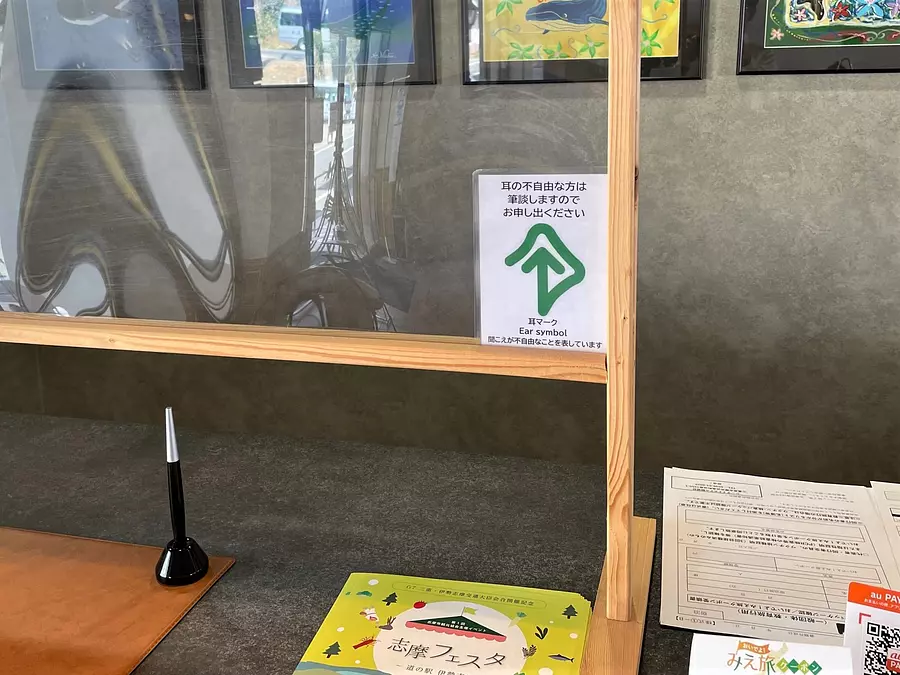
・ We have prepared a writing board for customers with hearing impairments and language impairments, and are communicating in writing.
・ For customers with developmental disabilities or dementia, the dining venue can be separated from other customers with a partition, or private rooms can be prepared.
・ When requested by customers with visual impairments or intellectual disabilities, staff will supervise them in the public bath.
【restaurant】
・ If you inform us in advance that you are coming to the store in a wheelchair, our staff will help you navigate the steps at the entrance.
・ We provide universal tableware such as spoons and forks that are easy to grip, and plates that are non-slip and easy to scoop.
・ We are responding to nursing care food such as chopped food and paste food.
・ Menus are read aloud to visually impaired customers.
・For customers with visual impairments,we use clock positions (an analogy to the face of a clock)to explain how to serve food, such as ``Miso soup at 6 o'clock.''
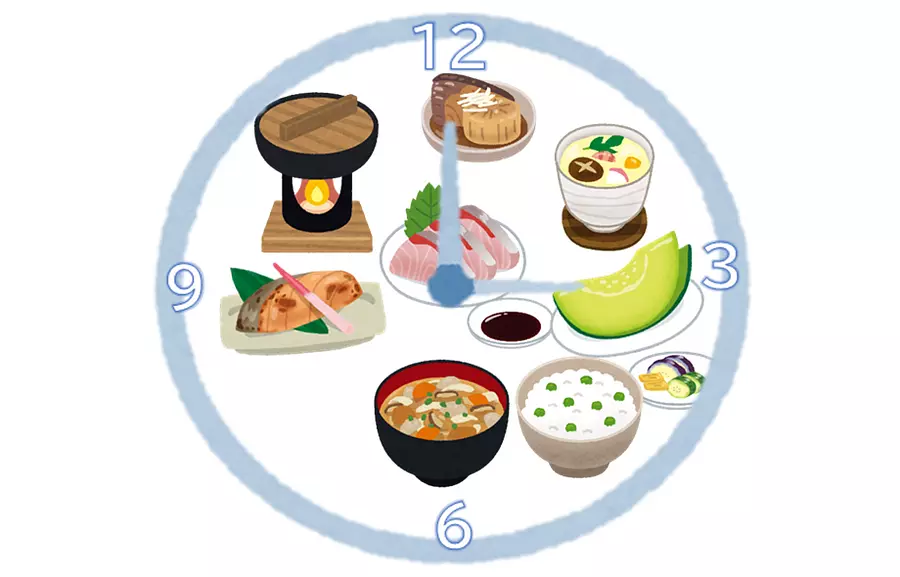
・ The menu includes pictures so that customers with hearing or language impairments can point to the menu.
Such
[Tourist information center]
・ Wheelchair rental available
・ We have prepared a map of nearby wheelchair-accessible restrooms.
・ In addition to the counter, we also have a table, so when customers in wheelchairs visit, we use the table to accommodate them.
・ Tourist information in Braille and audio is available.
・ We have staff who can speak sign language
・ The ear mark is displayed to show the attitude of accepting people with hearing impairments.
・ We have prepared a writing board for customers with hearing impairments and language impairments, and are communicating in writing.
Such
Certification criteria ②
Conducting barrier-free education and training at least once a year
・ Persons in a position to educate employees participate in lectures and training sessions for people with disabilities.
・ Watch training videos posted on the Japan Tourism Agency website
・ Invite instructors to facilities and receive advice on barrier-free hospitality
・ Conduct self-training among employees using textbooks
・ Official website staff learns how to disseminate barrier-free information
Such
Certification criteria ③
Proactively disseminate barrier-free information on websites other than your own website
・Accommodation reservation sites, gourmet sites, etc. have information such as ``Wheelchair rentals available,'' ``Wheelchair accessible restrooms available,'' ``Barrier-free rooms available,'' ``Written communication available,'' ``Chopped food available,'' and ``If you require assistance. Some kind of barrier-free information is posted, such as "Please ask the staff."
・Some kind of barrier-free information is posted on external sites such as tourism associations or tourism federations.
・Posted on sites that provide local barrier-free tourism information, such as the Ise-Shima Barrier-Free Tour Center
If you have any questions, please contact Ise Shima Barrier Free Tour Center
Applications for the ``Mental Barrier-Free Certification System'' are currently being accepted at the Japan Tourism Agency.
Creating an application form is not that difficult. The purpose is not to scrutinize facilities, but to promote mental barrier-free living, so as long as the three certification standards and required documents are met, the facility will most likely be certified.
Currently, tourist facilities are not eligible, but if there is a restaurant or information center providing tourist information within the facility, you can apply as a restaurant or tourist information center.
If you have any questions about how to apply or fill out the application form, please contact the Ise-Shima Barrier-Free Tour Center.
Ise Shima Barrier Free Tour Center
1F, TobaCity 1st Avenue, 2383-13 Toba 1-chome, Toba City, Mie Prefecture 517-0011
TEL:0599-21-0550 FAX:0599-21-0585
E-MAIL iseshima@barifuri.com
Business hours 9: 30-17:00 Closed on Thursdays
Click here for more information on the "Mental Barrier-Free Certification System for Tourist Facilities"
Opens an external site
https://www.mlit.go.jp/kankocho/shisaku/sangyou/innovation_00001.html
| Category | |
|---|---|
| area |
Related spots
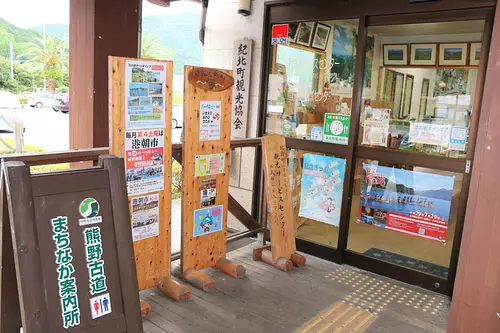
KihokuTown Tourist Service Center
HigashiKishu
Kihoku Town, KihokuTownA tourist service center located at the gateway to HigashiKishu. We provide tourist information next to Michi-no-eki Kii Kii-NagashimaManbo which is located at the intersection of National Routes 42 and 260. It is a barrier-free facility, and written conversations are also possible.
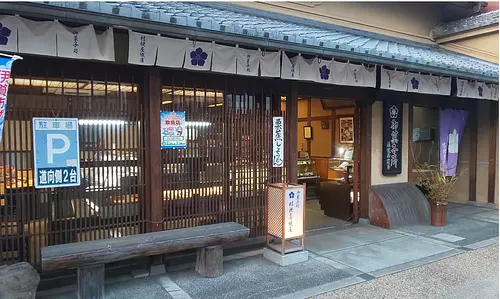
Kikyoya Orii Co., Ltd.
Iga
IgaCityLocated on Honmachi Street in Iga's castle town since the Edo period, it was founded as a merchant for the Todo clan. Since then, we have taken inspiration from Iga's history and culture to deliver sweets that have been passed down through tradition and ingenuity, and that transcend time and live in Iga's climate.
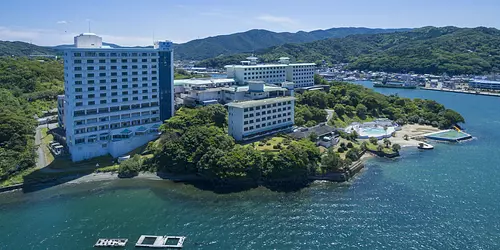
100 Sea Views of Hot Springs Toba Seaside Hotel
Ise Shima
TobaCityAn outstanding location overlooking the spectacular Toba Bay. You can enjoy bathing in three different public baths within the hotel, including Kazami-no-Yu, which has three types of open-air baths. We also have guest rooms with open-air baths, private family baths (for a fee), and a footbath and post-bath area, so you can spend the day soaking in the hot springs. As for the food, ``Shiki Buffet'' has an open kitchen where you can enjoy freshly prepared dishes not only with your tongue but also with your eyes and ears, and ``Shiki Kaiseki'' where you can enjoy a variety of menus centered on seafood in a separate room. Also popular. You can choose a room depending on the purpose of your trip and your budget: ``Boukan,'' which you can enjoy with your family or group, ``Misaki-tei,'' which is closest to the ocean, and ``Teikan,'' where you can enjoy a relaxing day in a spacious room. The in-house facilities include a pool (summer only), footbath, foot massage, "Iyashidokoro Pearl" (relaxation), snacks, karaoke room, izakaya, noodle restaurant, and lounge.
